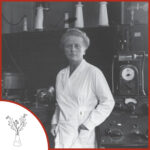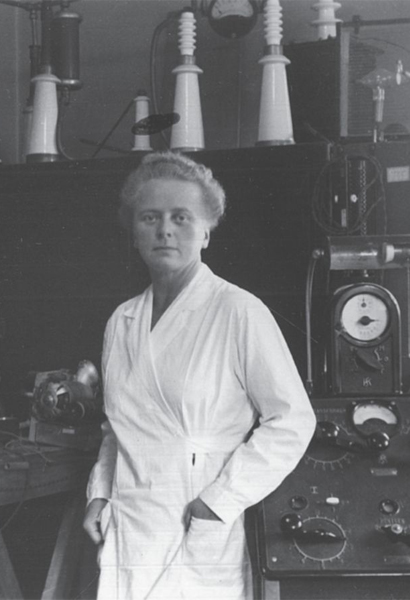

Birth: February 25, 1896
Death: September 24, 1976
Specialty: Chemistry, Physics
Major Contributions:
Discovered the element Rhenium
First to publish theoretical ideas of nuclear fission
Awarded Liebig Medal
Image Source: She Thought It
Inspired by the last two remaining gaps in the periodic table of elements, a team of chemists including Ida Tacke Noddack began searching for elements 43 and 75. Earning her doctorate in 1921, she soon became the first woman to hold a professional chemist’s position in the chemical industry in Germany.
In 1925 the team of Ida Tacke, Walter Noddack, and Otto Carl Burg claimed to have discovered element 43, which they named masurium, and element 75, called Rhenium. The scientific community confirmed their discovery of rhenium and accepted the element into the periodic table. It was a different story for masurium, which was not officially added to the table as no one was able to reproduce their results and isolate any of the element.
Ida Tacke became Ida Tacke-Noddack when she married her research partner Walter. The two worked together for the rest of their professional careers, most of the time with her working in unpaid positions because of her gender and cultural attitudes of the time.
In response to a paper written by Enrico Fermi in 1934 where he claims to have created elements heavier than uranium, the heaviest known element at the time, she correctly identified flaws in his work and put forth the idea that perhaps bombarding uranium with neutrons could cause the element to break down into smaller elements. This proposal of what would, just a few years later, be coined as nuclear fission, was mostly ignored by scientists at the time. Eventually others were able to experimentally show the fission of elements that she had first proposed.
She was nominated three times for the Nobel prize, but it is speculated that the couple were never awarded the prize because the political climate in Germany at the time stood in their way. Ida did earn many honors in her career nonetheless, including the Justus Liebig Medal from the German Chemical Society and the Bundesverdienstkreuz of the German Federal Republic.
Written by Angela Goad
Sources:
Atomic Heritage Foundation: Ida Noddack
Encyclopedia Brittanica: Ida Noddack
September 24, 1978 – The Wesel chemist Ida Noddack dies
See Also:
Unlearned Lessons: Ida Tacke-Noddack (Archived)
